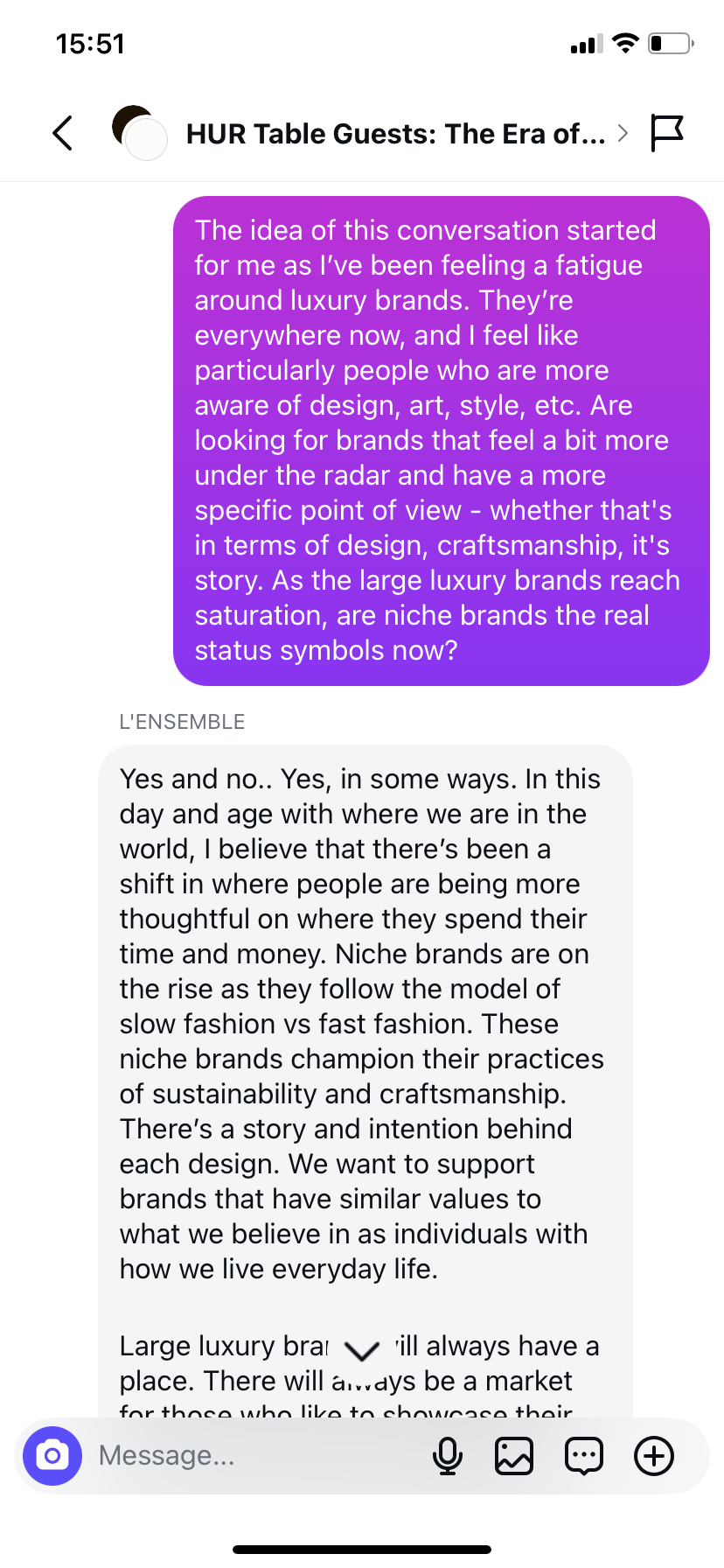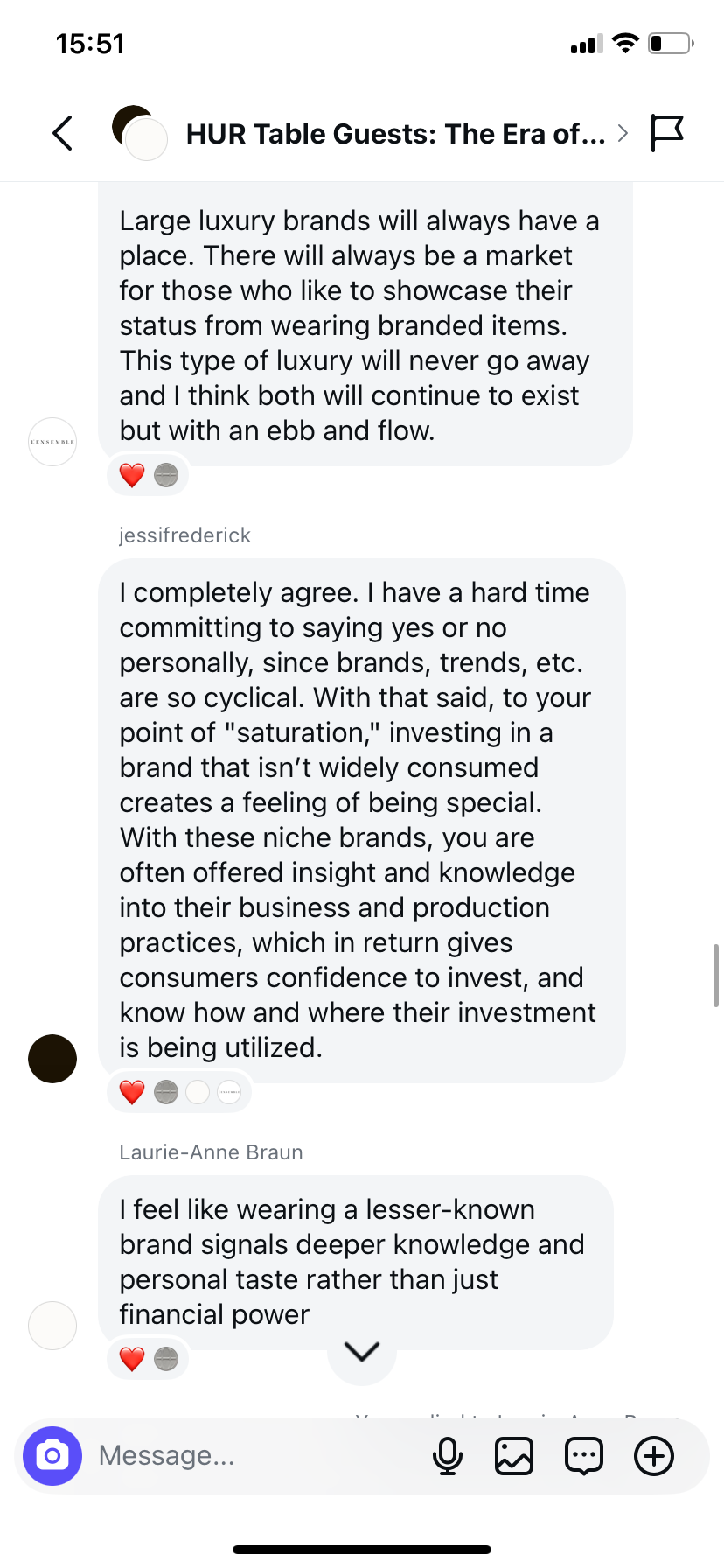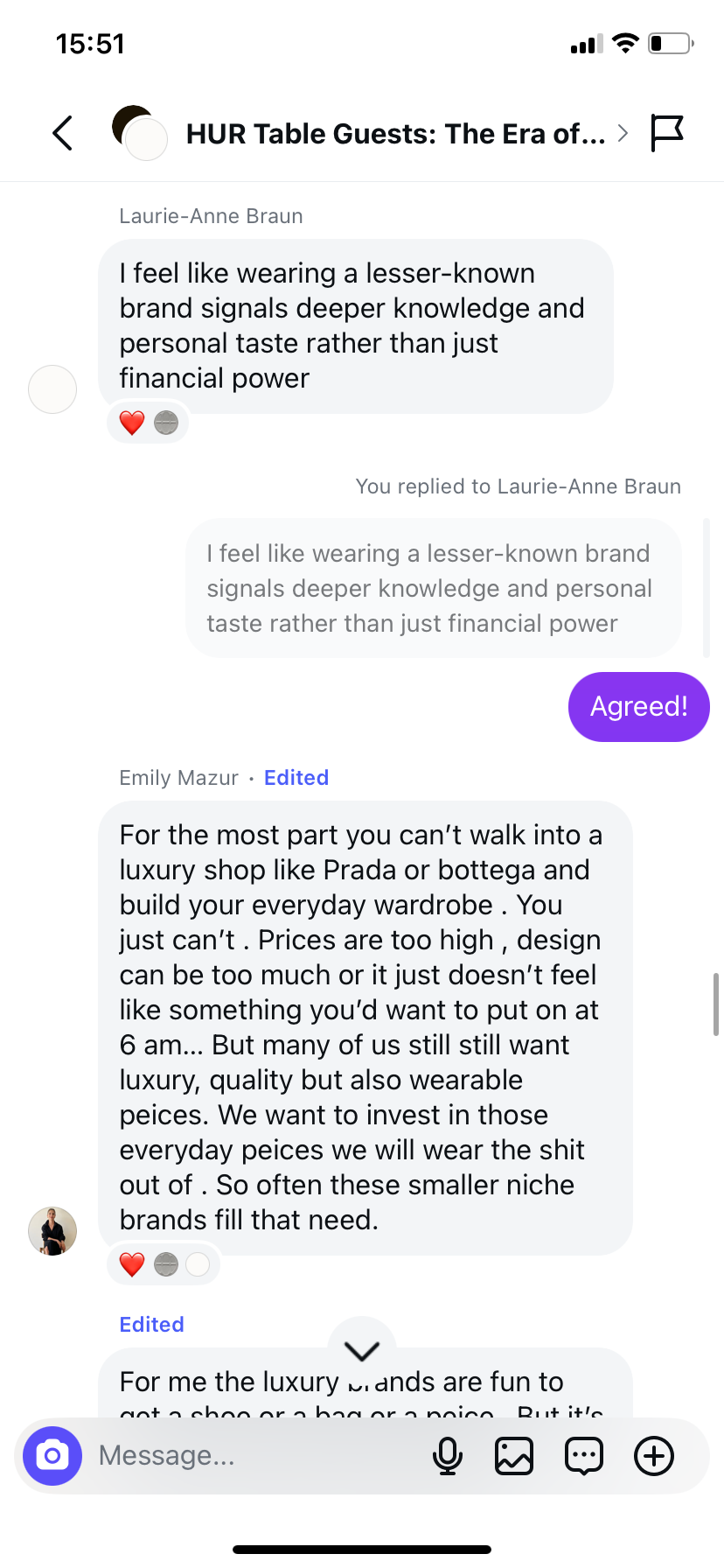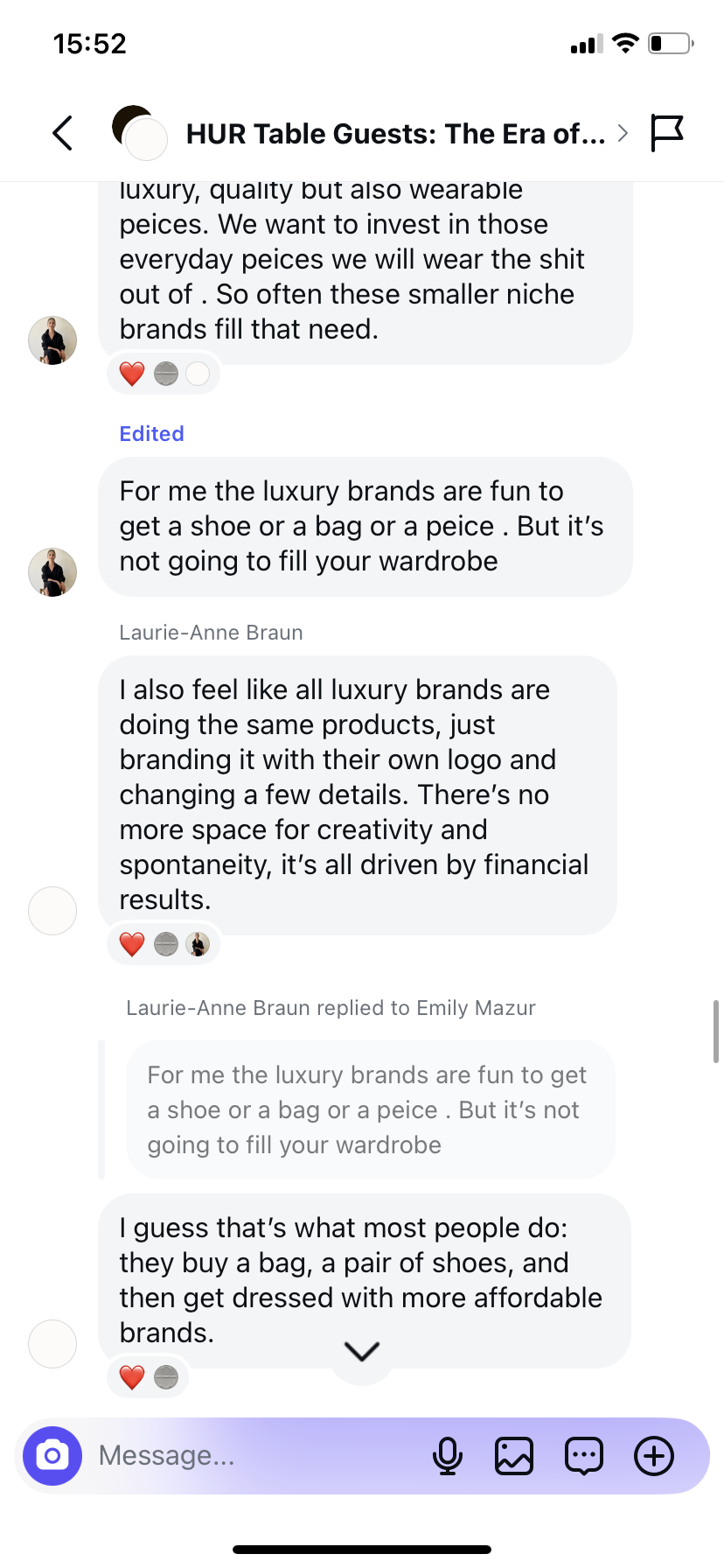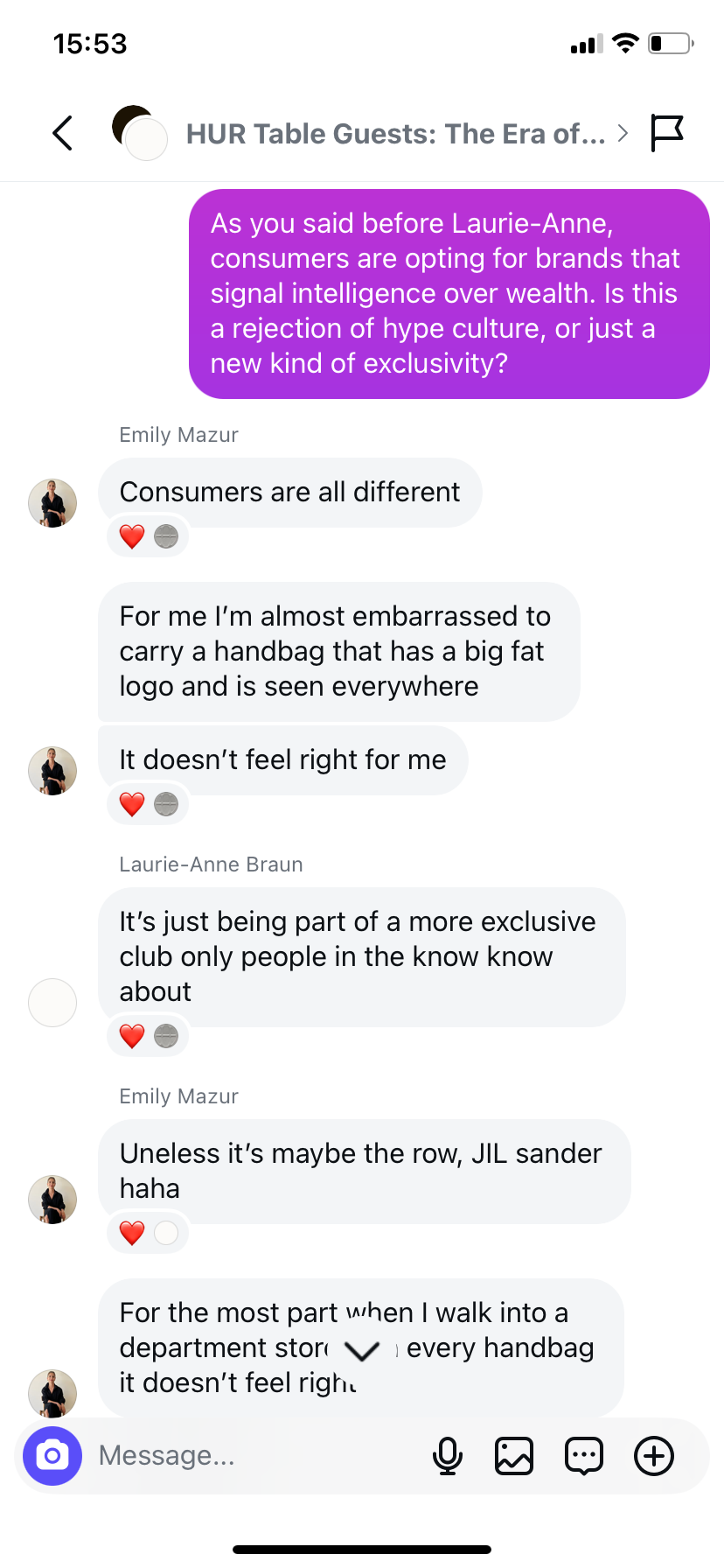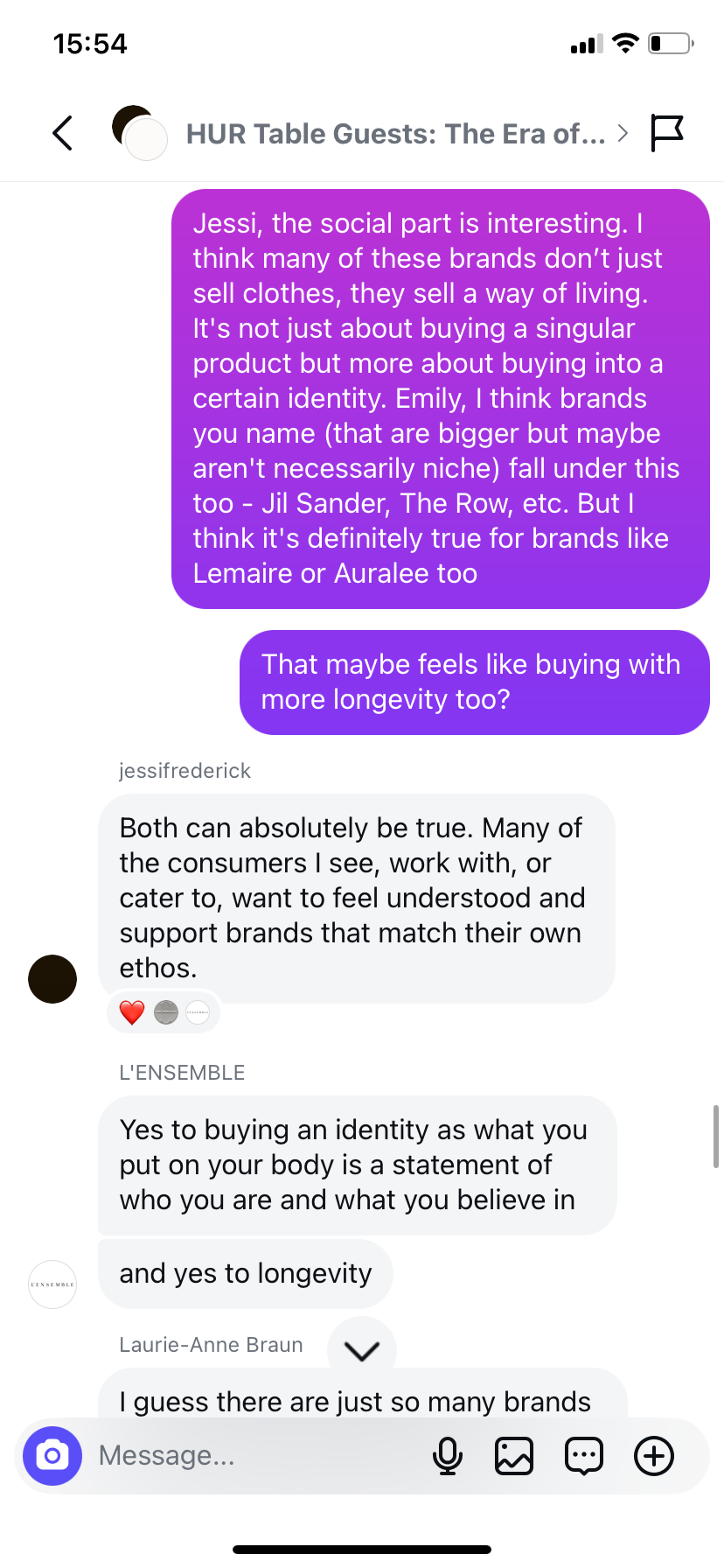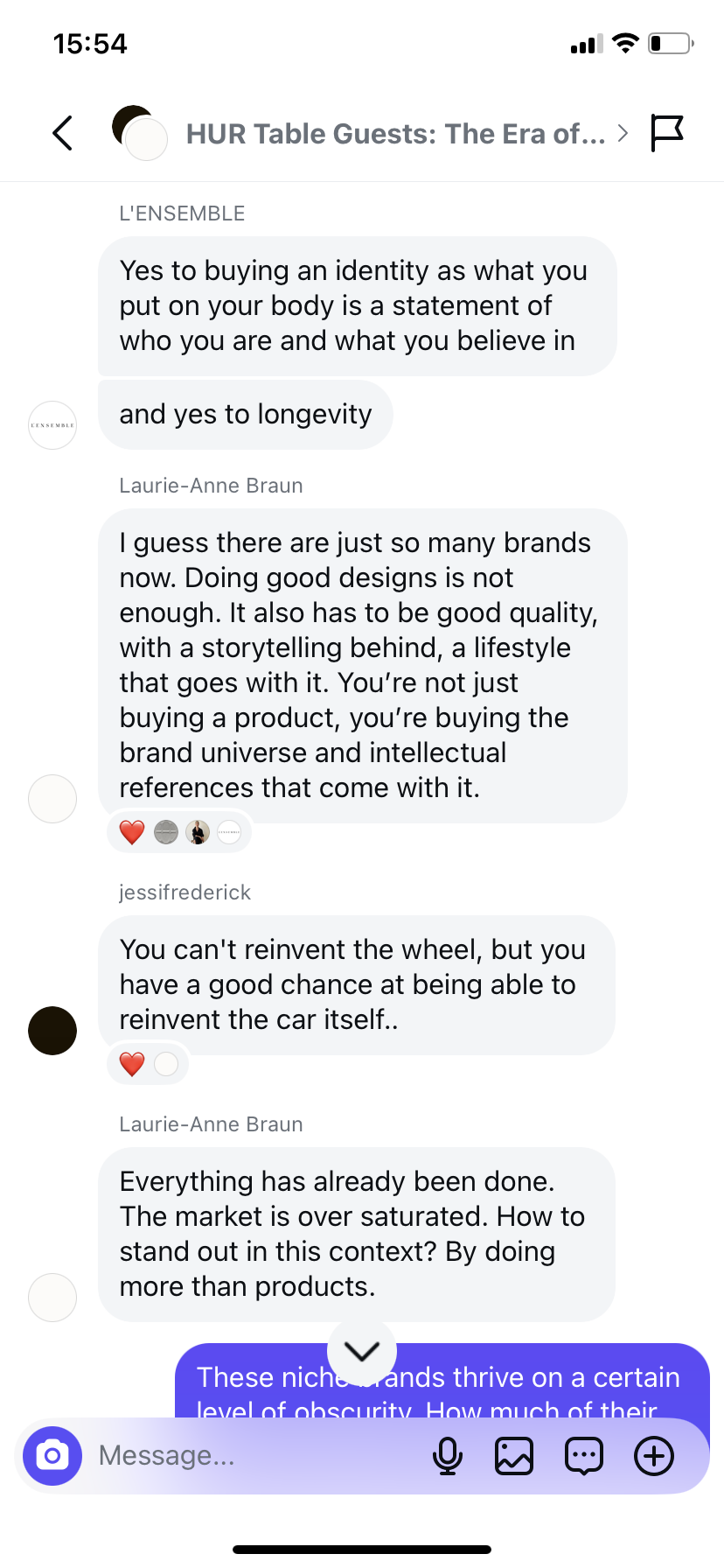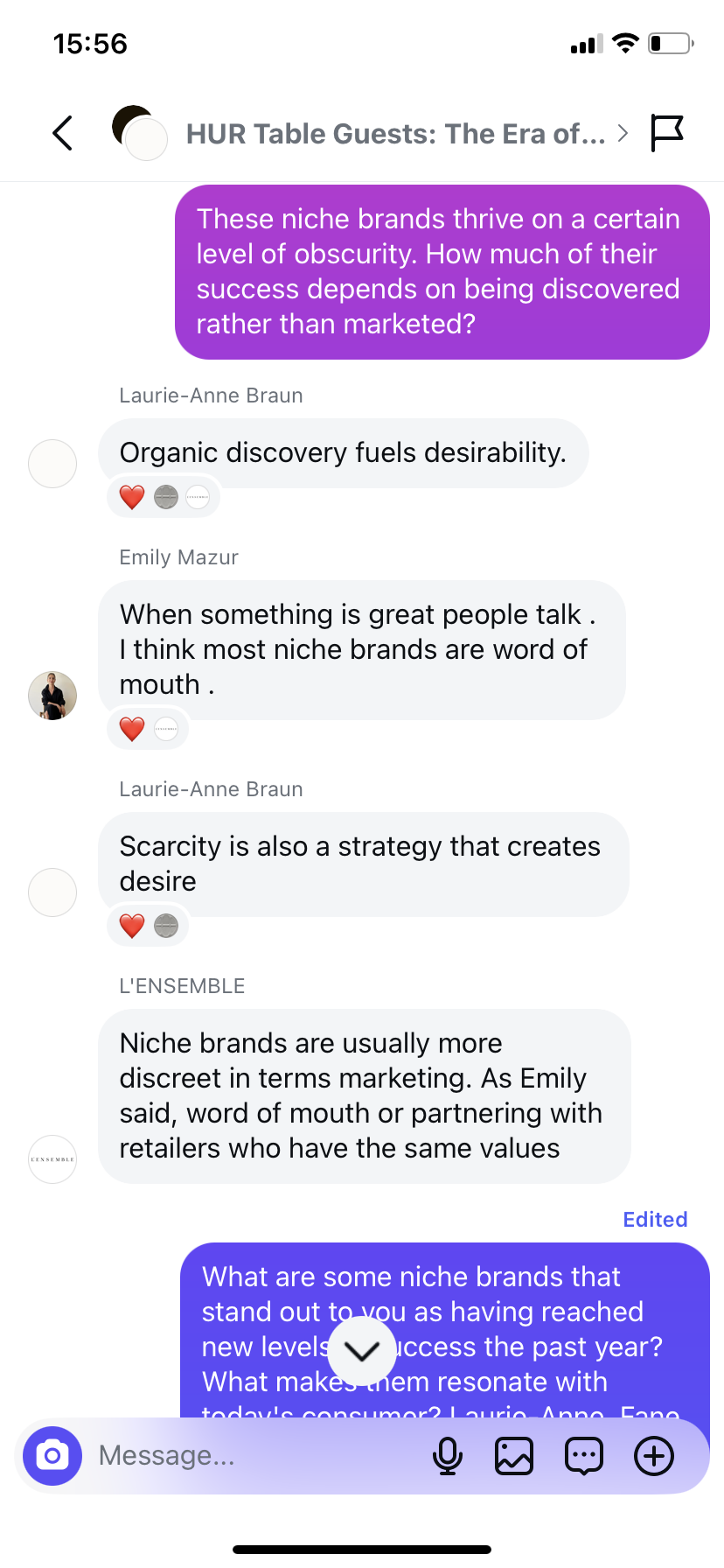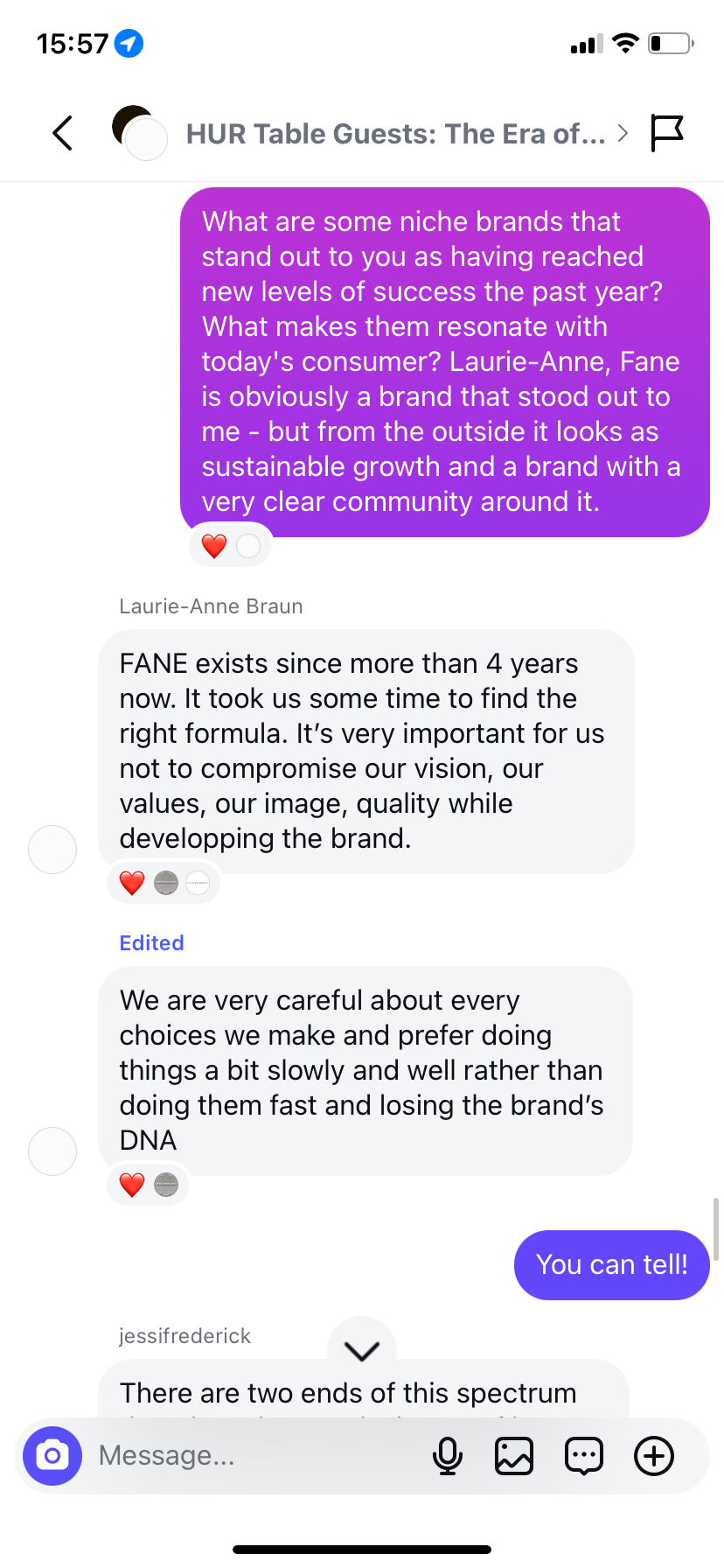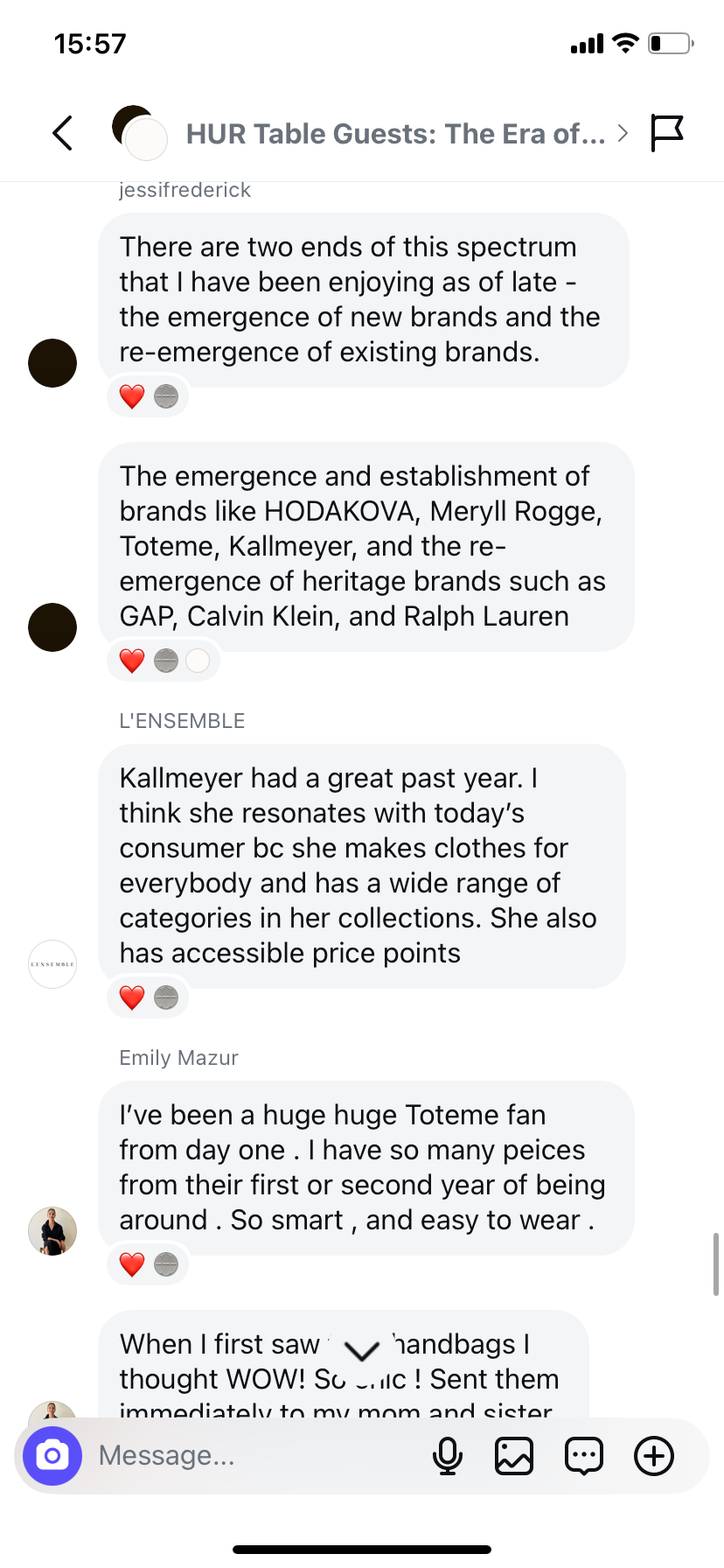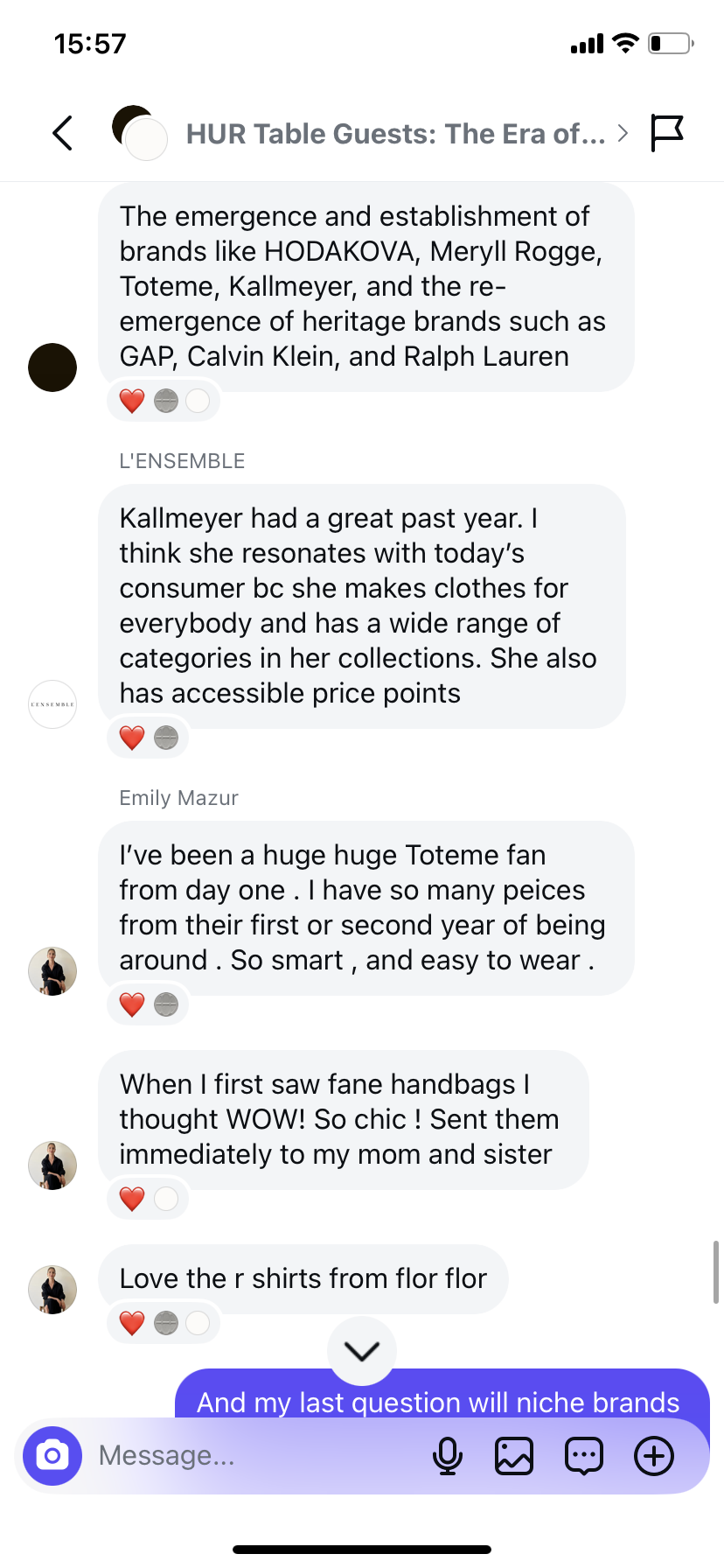Why Niche Brands Are Winning Big
Courtesy of Lemaire
Why Niche Brands Are Winning Big
with Jessi Frederick, Emily Mazur, Dawn Nguyen and Laurie-Anne Braun
By HURS Team
As traditional luxury expands to meet the demands of the masses, a quieter countercurrent is taking shape—one defined by restraint, intention, and a distinct lack of spectacle. Brands like Lemaire, Studio Nicholson, and Auralee are leading the charge. Not with campaigns engineered for virality, but with a philosophy that values thought over noise. These brands don’t just make clothes. They articulate a worldview.
Where mainstream luxury has become increasingly performative—its symbols of wealth easily decoded and widely replicated—niche brands offer something far more elusive: discretion. In a cultural landscape saturated with sameness, niche brands are carving out space for depth. And in doing so, they’re redefining what it means to be relevant. Their garments aren’t designed to announce, but to signal alignment with a way of thinking rather than a tax bracket. In this sense, they’ve become the true status markers—not because they are inaccessible, but because they require a certain level of awareness and engagement to be appreciated.
At the heart of their appeal is a shift in values. Today’s consumer is less concerned with being seen in something expensive, and more interested in being understood through the choices they make. Style has become less about visibility, more about coherence. A Saman Amel trouser or an The Row knit doesn’t beg for attention—but to those who know, it says everything.
There’s also a strategic opacity at play. These brands thrive in the space between exposure and obscurity. Their success depends not on scale, but on selectivity. They are discovered, not pushed. Admired quietly, not shouted across social feeds. The marketing is minimal, because the product—and the life it evokes—is the message. More than fashion, they offer a framework. The product is just the entry point. What’s really being sold is a way of moving through the world: considered, intelligent, quietly assured. And in a time when identity is constantly broadcast and curated, the appeal of a brand that reflects a deeper internal logic is profound.
But this raises the question: can niche stay niche? And should it? Growth often demands compromise—on price, on distribution, on storytelling. The challenge lies in how these brands scale without diluting their ethos. How do they remain intimate in an industry that equates success with reach?





